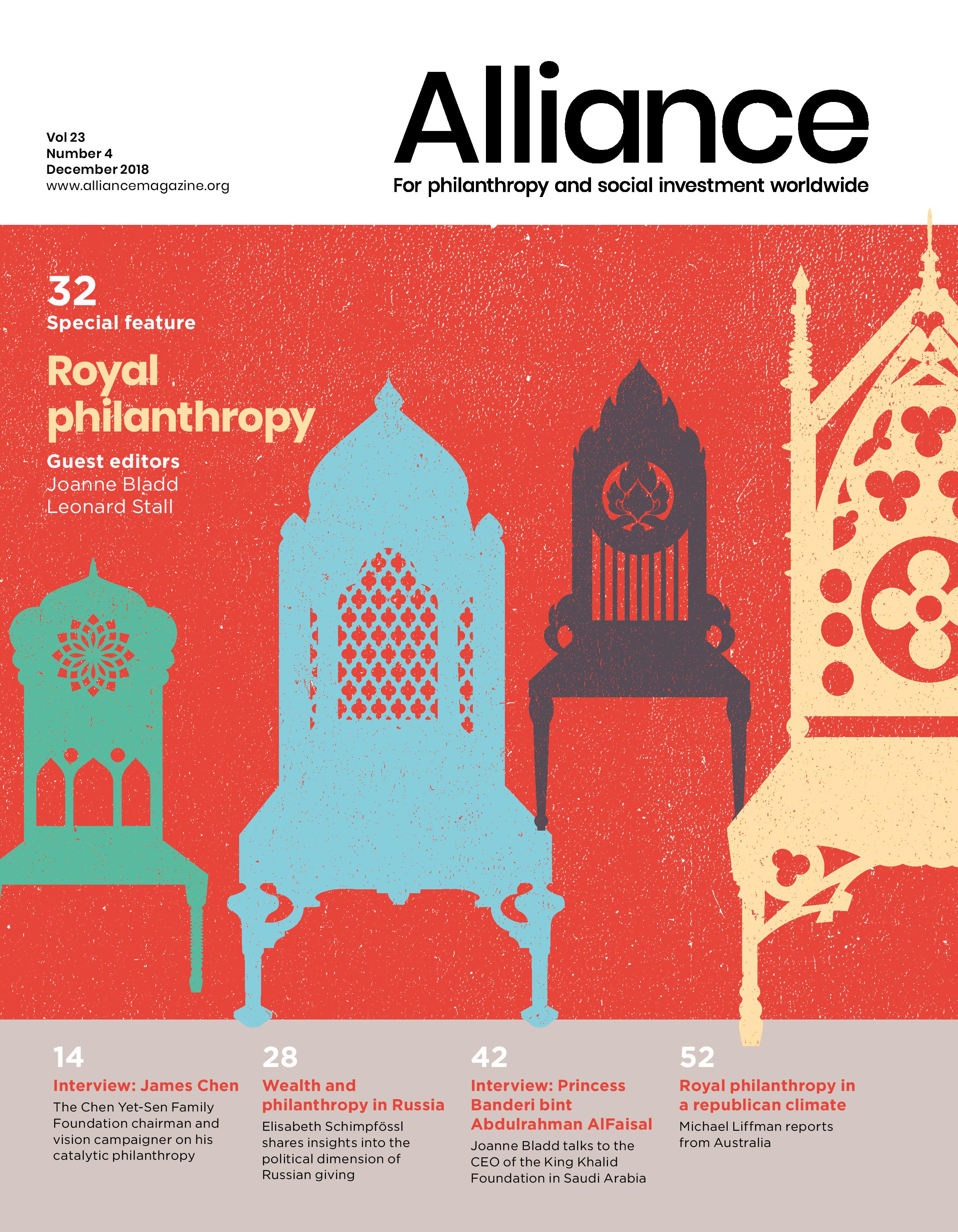Philanthropy University is pioneering new ways of using data to identify the capacity needs of valuable but neglected local CSOs
As a global community, we often mobilise around visible crises: epidemics, child marriage and environmental degradation. There is another crisis, however – one not often covered by global headlines – that prevents local civil society from effectively addressing these challenges: a capacity crisis that keeps these local organisations from reaching their full potential as the change agents we desperately need.
Need for coordinated approach
With their understanding of local context and deep-rooted relationships, local organisations will have a critical role in achieving the UN’s Sustainable Development Goals. However, the International Forum on Nonprofits notes ‘an urgent need for a coordinated approach to develop the capacity of civil society globally’, since their contributions are the key drivers of progress within these social focus areas. Local organisations are resilient, but face capacity challenges that often put them at a distance from grants and other opportunities to execute on their missions and save more lives.
In order to build the capacity of civil society at scale, across the world, we must first determine the real needs of the sector and then provide innovative solutions to meet them.
Many tools exist to provide organisations with a snapshot of where they may need to improve or build skills. The William and Flora Hewlett Foundation recently reported on existing organisational assessment tools, reviewing 91 that varied between multi-area assessment tools and checklists. There are interactive tools, too: McKinsey’s Organizational Capacity Assessment Tool (OCAT) offers a collaborative, time-bound assessment that asks ten categories of questions to a team of respondents, and aggregates results into a final report that can later be used for decision-making and planning. Digital or offline assessment tools are not new, but capturing aggregated data on civil society as a whole, at scale and in the far-reaching corners of the world, is.
Our dataset also gives us a unique look into the capacity needs of local organisations operating in some of the most challenging circumstances in the world, with the least access to resources.
The Organization Effectiveness Framework
The Philanthropy University is a free online learning resource whose aim is to increase the impact of local organisations, especially those working in the Global South. In launching our own online capacity building platform, we sought to build and cultivate this first-of-its-kind data set. When registering on our platform, organisations are asked to complete an organisational capacity assessment, called our Organization Effectiveness Framework (OEF), which covers ten areas of organisational effectiveness, and was created in collaboration with development professionals and industry thought leaders, including the Haas School of Business at the University of California, Berkeley.
Qualitative research from organisations like Grantmakers for Effective Organizations suggests that if organisations build their capacity and execute more effectively against their missions, their communities experience long-term positive outcomes.
These self-assessments yield a sizeable dataset which we will analyse in order to provide the sector with a superior understanding of widespread deficiencies. With over 80 per cent of our learners operating organisations in the Global South, our dataset also gives us a unique look into the capacity needs of local organisations operating in some of the most challenging circumstances in the world, with the least access to resources. Separate from the OEF, we can also look at behavioural data to see how organisations are approaching their own capacity development. For example, between March and September 2018, our most in-demand courses were Planning for Monitoring and Evaluation, Advocacy and Fundamentals of Project Management.
Capacity building and increased effectiveness
Technology captures data that can be used to illuminate civil society’s true capacity needs, but it can also be used to answer even bigger questions, such as whether or not capacity building results in long-term positive outcomes for communities. Qualitative research from organisations like Grantmakers for Effective Organizations suggests that if organisations build their capacity and execute more effectively against their missions, their communities experience long-term positive outcomes. However, experimental research on the connection between capacity building assistance and organisational effectiveness is recent and sparse, and rigorous evaluation is still needed.
We think technology can help to make that evidence-based case – namely, that an individual’s own skill-building can make her or his organisation stronger, subsequently contributing to sustainable impact within the community. Online learning platforms or mobile applications can test capacity building assumptions with quantitative evidence, looking at which courses or resources best contribute to organisational outcomes. Data can be monitored over time, taking note of both outputs on the journey as well as bigger-picture outcomes. Improved access, through website, mobile and other technology, helps us to gather a robust and large pool of data.
If we are successful, we can end the situation where the capacity needs of local organisations are hidden or simply ignored, especially in those places where it matters most.
While the OEF data is already compelling, the most valuable insight into the sector will be the change in capacity over time. To capture this change, we will need to ensure that organisations continue to engage with us and update their data. This in turn dictates the need to create valuable, relevant content for local organisations operating in challenging environments. Our dataset may also provide guidance on the best opportunities for developing complementary, local, in-person practices to fill gaps where our technology services fall short.
Our hope is that our online platform, alongside other technology solutions and cross-sector partnerships, will provide the insight and guidance necessary to improve the sector’s collective resource allocation to capacity building efforts. If we are successful, we can end the situation where the capacity needs of local organisations are hidden or simply ignored, especially in those places where it matters most.
Connor Diemand-Yauman is CEO and co-founder of Philanthropy U.
Email: connor@philanthropyu.org
Twitter: @connord_y.







Comments (0)